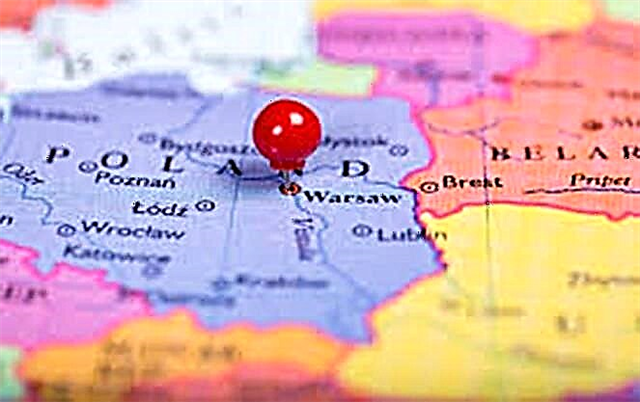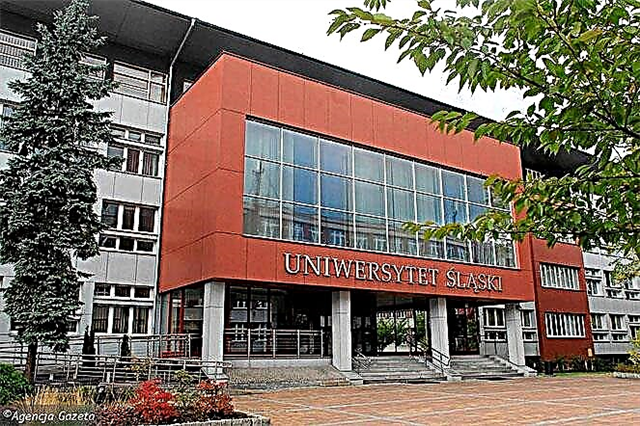A person receiving income always arouses genuine interest on the part of the fiscal services of any country. Despite the difference in rates, types of reports and deadlines for its submission, the income tax in Russia and the tax for individuals in Poland are very similar in terms of the principle of calculation and collection to the budget.

Structure of the Polish tax system
There are 13 direct and indirect taxes in the Republic of Poland, the revenues from which replenish the country's budget:
| The essence of the collection | Polish name | Bid |
|---|---|---|
| Personal income tax (personal income tax) | Podatek dochodowy od osób fizycznych or PIT | 18% vs. 32% |
| Corporate income tax | Podatek dochodowy od osób prawnych or CIT | 19 % |
| VAT | Podatek od towarów i usług or VAT | 23 % |
| Inheritance and gift tax | Podatek od spadków i darowizn | Depends on the type of property |
| Agricultural tax | Podatek rolny | Monetary equivalent of a portion of the crop |
| From forestry income | Podatek leśny | Cash equivalent of 0.202 cubic meters m from 1 ha |
| Contributions from property owners | Podatek od nieruchomości | Installed by the communes |
| Transport tax | Podatek od środków transportowych | Installed by the communes |
| Tonnage payments | Podatek tonażowy | Up to 19% |
| Subsoil use fees | Podatek od wydobycia niektórych kopalin | Calculated monthly |
| Payments from civil contracts (GPC) | Podatek od czynności cywilnoprawnych or Civil Law Activities Tax (CLAT) | Up to 20% of the contract amount |
| For the gambling business | Podatek od gier | At tariff rates or 12% of revenue |
| Excise taxes | Akcyzy | At rates per unit of production |
Taxation of income of residents and non-residents of Poland
All types of payments in the form of salaries and other income of individuals are subject to personal income tax. It should be noted that in Poland taxes are levied even on passive income in the form of deposits - from the profit received, each depositor must pay 19% in the form of “Belka tax” or podatek od zysków kapitałowych.
Income tax in Poland in 2021 directly depends on the amount received during 12 months of a calendar year:
| Amount of receipts | Personal income tax rate (PIT) | Formula |
|---|---|---|
| Up to PLN 3,091 | 0 % | |
| Over PLN 3,091 to PLN 85,528 | 18 % | (85 528 – 3 091)*18 % |
| Over PLN 85,528 | 32 % | (100 000 – 85 528)*32 % + (85 528 – 3 091)*18 % |
Moreover, the interest rate does not depend on whether a person has the status of a tax resident in the country - a Polish employer must withhold the same amounts from employees' salaries, even if there are foreign citizens in the team.
In other words, income tax in Poland for foreigners and for persons with Polish citizenship is practically the same, except that a tax resident has the right to independently file personal income tax returns (form PIT-37), and a non-resident should rely on to your employer.
The inability to compile a report on the income received deprives a person of the right to receive benefits and joint calculation of obligations (with a spouse or children).

As a general rule, only those who actually stay within the country for 183 days or more are recognized as residents of Poland. In addition, the center of a person's economic and personal life should also be located in this country (work, family, etc.).
Tax incentives for personal income tax in Poland
The Polish government has provided for taxpayers several types of concessions to reduce the fiscal burden. In particular, a special place is given to benefits for children.
So, each subsequent dependent family member (born, adopted or taken into custody) will reduce the parent's obligation:
- 92.67 PLN per month - the first child;
- another 92.67 zł / month - the second;
- plus to 185.34 PLN 166.67 / month - the third baby;
- another 225 PLN / month less will be deducted from the tax base for the appearance of the fourth child and each subsequent one.
It should be borne in mind that in order to receive benefits, the annual income of both parents must not exceed PLN 112,000; for single mothers and fathers, this figure should be at the level of 56,000 zlotys per year.
For foreign workers, a pleasant bonus is that neither the place of residence of the children nor their citizenship plays a role in reducing the amount of taxes. That is, even if the children are actually not on Polish territory, their parents will still receive the privilege.
In addition to "children's", the country provides for several more ways to reduce taxes: charitable contributions, donation, active use of the Internet, spending on health and rehabilitation, construction of the first home for personal residence.
The amount of non-taxable income
In addition to the progressive personal income tax rate, Poland has its own gradation in relation to non-taxable amounts. In particular, from January 1, 2021:
- if the annual income is less than PLN 8,000, it is not taken into account when taxing income;
- if the amount of annual profit does not exceed PLN 13,000, then 18% of personal income tax will be taken only from the difference, subtracting 8,000 non-taxable PLN from the total earnings;
- if the amount of income is between PLN 13,000 and PLN 85,528, then only PLN 3,091 will be considered non-taxable.
Another interesting way to reduce personal income tax liabilities is joint settlement in the declaration (with a spouse or child). In this case, the family's income is summed up, and then the average earnings per member are displayed. If the wife or minor child does not have a high income, then the tax rate can be reduced from 32 to 18%.

To use this method, you need to consider the following:
- no family member should be engaged in entrepreneurial activity;
- both spouses must live in Poland for 183 days a year or longer;
- it is necessary that the marriage between them as of January 1 of the reporting year has already been concluded and remains valid until December 31.
Social contributions for employees in Poland
As in many other countries, social insurance contributions in Poland are divided between the employee and his employer:
| Contribution name | Calculated and paid at the expense of the employer | Withheld from the employee's salary |
|---|---|---|
| Pension insurance | 9,76 % | 9,76 % |
| In case of an accident at work | 1,8 % | |
| For insurance during the period of incapacity for work | 2,45 % | |
| Rent payments (as collateral in case of disability) | 6,5 % | 1,5 % |
| To the Employment Fund | 2,45 % | |
| To the Employee Payments Guarantee Fund | 0,1 % | |
| Medical service | 9 % | |
| Income tax | 18 (or 32%) |
Previously, the payment of most of the social security contributions could be avoided by concluding a civil contract (umowa o dzieło) or an assignment (umowa zlecenia) instead of an employment contract.
Since 2021, significant adjustments have been made to the labor legislation, and now all relations in the field of attracting specialists on an ongoing basis are formalized only in the form of hiring (umowa o pracę).
Tax on the commission of civil acts
When making civil transactions in Poland, it is customary to charge a percentage of the contract amount for concluding a contract or making significant changes to existing documents:
- sale and exchange of property (real estate, transport or other expensive items) - 1-2%;
- loan and mortgage agreements, easement (paid and free) - from 0.1 to 2%, in some cases there is a fixed rate of 19 zlotys;
- registration of gifts and inheritance - 1-2%;
- registration or changes in corporate rights - 0.5% of the authorized capital.
At the same time, a rather long list of operations does not fall under the taxation, for example, registration of guardianship or social insurance, establishing bankruptcy, conducting activities within the free customs zone, selling goods worth less than PLN 1,000.
Property Ownership Tax
The basis for taxation is the value of objects:
- land plot;
- buildings, structures or their parts;
- commercial real estate and its parts.
Payments for the use of premises and land are calculated for a calendar year and are paid in installments:
- quarterly (up to the 15th day) - by individuals;
- monthly (up to the 15th day) - by legal entities;
- lump sum - if the payment amount does not exceed PLN 100.
Tax rates are approved at the municipal level, and payments are credited to the local budget.
Taxation of inheritance and gifts
It happens that a change in the owner of property (movable or immovable, monetary contributions or the right to receive payments) does not occur as a result of a sale and purchase, but in connection with donation, inheritance or receipt as compensation. In such situations, the new owner is obliged to pay part of the cost of the object to the budget of the local commune.

Although the tax rates are approved by the municipality, they largely depend on the nature of the property received and the degree of relationship between the giver and the recipient of the gift. Transactions involving the transfer of Polish real estate are exempted from paying contributions if the heir and the testator are not residents of this country.
Transport tax
For the right to own and use vehicles on the territory of Poland, you must pay the corresponding tax annually. Payers in this case are both ordinary citizens and business representatives - entrepreneurs and organizations.
Excluded from this list are only those cars that are owned by diplomatic missions, are included in the country's mobilization reserve, or are considered antiques.
Rates are developed and approved locally, but cannot exceed the maximums established in local tax laws. The fee must be paid in two stages: before September 15 of the reporting year and before February 15 of the next.
VAT refund to guests of the country
Any state welcomes people who are ready to spend money on its territory. In part to make this spending even more enjoyable for tourists, a Tax Free system has been developed. It operates in all countries of the European Union.
However, in order to receive a refund in Poland, you need to perform a number of actions on the territory of the country, at the border and at home:
- The purchase must be more than PLN 200.
- The seller must be a VAT payer and be able to issue a relevant document (sample below).

- The purchased item must leave Poland within the next 3 months without unpacking and using.
- Upon departure, the document on the refund must be approved by the Polish customs officers (after checking, the officer must put the appropriate stamp).
- In order not to waste time at the border, a tourist can use the online service for obtaining Tax Free.
- You can get money either when you go to the store again (if you can return there after customs clearance) or in your home country. Most often, banks operating in the country of permanent residence of the tourist are involved in VAT refunds. You can find out about this from the Tax Free form.
Of course, only part of the purchase price is subject to compensation. In the case of Poland, the amount can reach 23% of the payment.
Summing up
Unlike most of the EU states, Poland is quite loyal to the issues of taxation of non-residents. Working foreigners do not suffer financially from withholding taxes, since the rate depends solely on the amount of profit earned in a calendar year.
The only restriction that applies to foreigners is the inability to use deductions and benefits. But this limitation also applies only to those who live in the country for less than 183 days a year.












